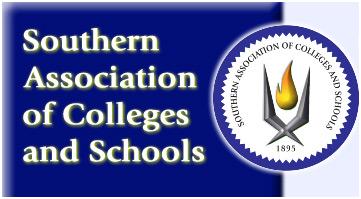The necessity of final exam meeting period requirements

High Point University is a member of SACS. Photo by: SACS. org
By Meg Thomson, Staff Writer//
Over the last few years, professors and students have expressed irritation and disapproval of the required final exam period. While professors at High Point University are not required to give a written final exam, they are required to have students meet for the three-hour final exam time slot. For the courses that have a final exam, this does not cause problems or questions; you take your final exam during the final exam time slot, no problem. The questioning and disapproval arises for courses that do not have final exams, but rather final papers, projects, presentations, or another form of final assignment. This becomes far more common as students dive deeper into their major courses after completing their general education requirements. A few questions arose from this: A) why is it that professors are required to meet during the time slot and B) what happens if a student does not show up to the final exam time slot (assuming they do not have a written final exam).
According to Dr. Dennis Carroll, Provost and vice president of academic affairs, the final exam meeting requirement exists due to accreditation purposes. Our regional academic accreditation here at HPU is provided by Southern Association of Colleges and Schools.
“This association grants our accreditation, but also provides all the guidelines for what constitutes an education,” Carroll said. “SACS requires that we abide by the federal definition of a credit hour.”
According to Dr. Carroll, this means that for every credit hour in a course, you must spend 1 hour of in-class time for 15 weeks. At HPU, due to our mid-semester and holiday breaks, these 15 weeks include exam week. This means that the week of final exams, students must meet in order to accommodate the accreditation requirements for the documented credit hours. If a professor cancels a class during the regular semester, there must be an assignment, activity, or something along those lines to make up for the missed course hours, which are arranged individually with his or her department chair.
Here arises another question- what happens if a student is unable to attend the final exam or skips the final exam period? It simply counts as an absence. “Technically, if a student didn’t have a grade due that day and he or she had saved cuts/absences, they could miss it,” Carroll said.
For students with papers and projects as final assignments, this means attendance is even more vital. A student could arrange with a professor to miss the final exam day, given he or she has enough absences left by the end of the semester and go home a few days early by turning their assignment in via email. All of these decisions are made at the discretion of the individual professor. This means, in theory, if professors do not want to hold a final exam, they have to make up for it in some other form of assignments or hours. However, some students do not see that as an ideal solution.
“I would rather meet during the exam period,” Becky Irons, senior, said. “I already have so much work to do over the school year, I can’t afford to do another assignment.”
“I have a solution for all of this,” Carroll said. “I would like to have an honor system for exams.”
Dr. Carroll went on to explain that at his daughter’s college, the faculty members put their exams in envelopes and the students could pick them up from the Honor Court at their leisure and take each exam at whatever time they felt was the most convenient for them. All exams could be taken on the same day or you could take them spread out throughout the week. Without proctors and professors being present at the exam, those faculty members are able to help other students with study materials, hold additional office hours, or help their students prepare for those exams in other ways.
“It is something that I would really like to do at this university,” Carroll said.
Clearly the most important issue to consider with this exam system is cheating. Violating the honor code has serious consequences at HPU, but prevention in an open exam setting could prove to be extremely difficult. Test-runs for this system are being brainstormed for various courses in order to test the waters.
Required meetings for final exams are becoming unnecessary and almost archaic. While the accreditations require a meeting time, it is an overgeneralization to assume that all courses require the extra meeting time at the end of the semester. Courses with final assignments require just as much work and time commitment as those with final exams; this work and time is put in outside of class rather than in-class test taking.
“To fix this, we really ought to do open exams,” Carroll said.